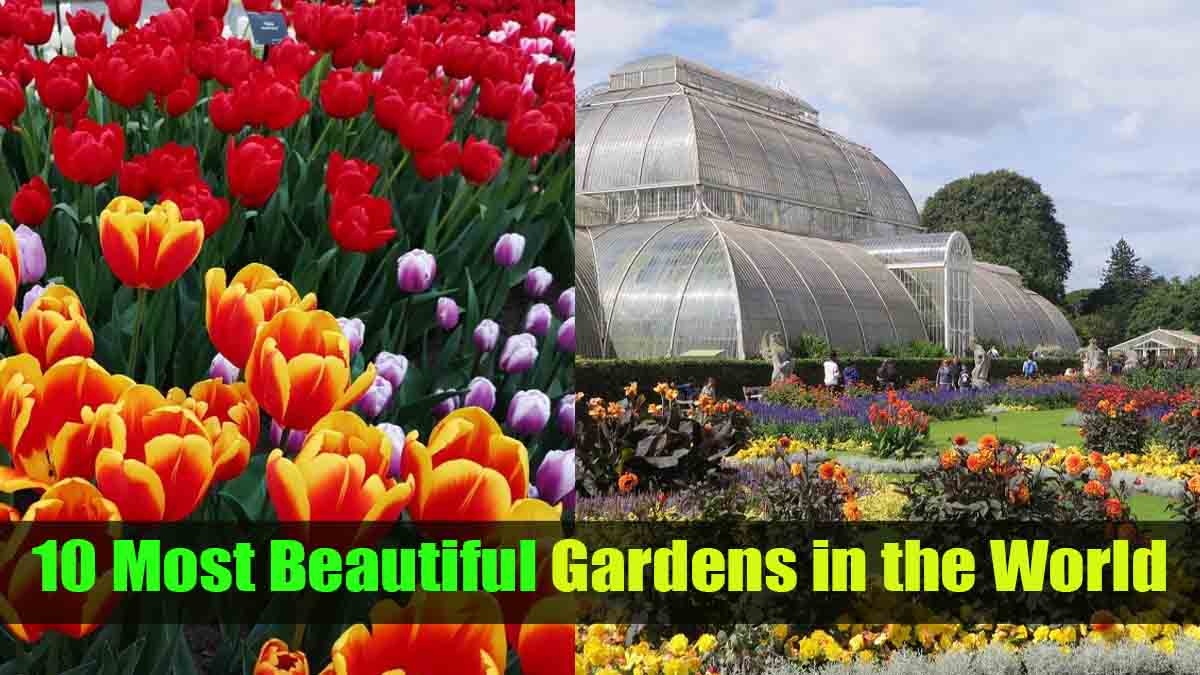
Many nature lovers love to travel to places where the environment matches their preferences. That is the reason we are here given. Every single one of the 10 Most Beautiful Gardens in the World gives you totally unique feelings.
#1. Villa d’Este

Villa d’Este is located in the Italian city of Tivoli. Villa d’Este is a large estate that dates back to the 16th century. The villa itself is now a UNESCO World Heritage Site, but the real attraction for many visitors lies in the gardens, which are some of the most beautiful. More ornate and lavish than you’ll find anywhere in the world, it’s famous for its intricate network of water features that include 51 fountains, 398 spouts, 364 water jets, 64 waterfalls, and 220 basins in just over half a mile’s worth. There are canals that provide water.
Amazingly for the individual elements, no pumps or electronic devices are used to do all this work, instead, it uses the force of gravity to generate the pressure required by the entire complex Renaissance design. is one of the best examples out there and covers It’s almost impossible to get lost in the grounds of nearly four and a half hectares, surrounded by perfectly manicured hedges throughout all seasons, with open spaces and a wide variety of flowers. If gardens are interesting to you, then there is no better place than Villa d’Este.
#2. Royal Botanic Gardens
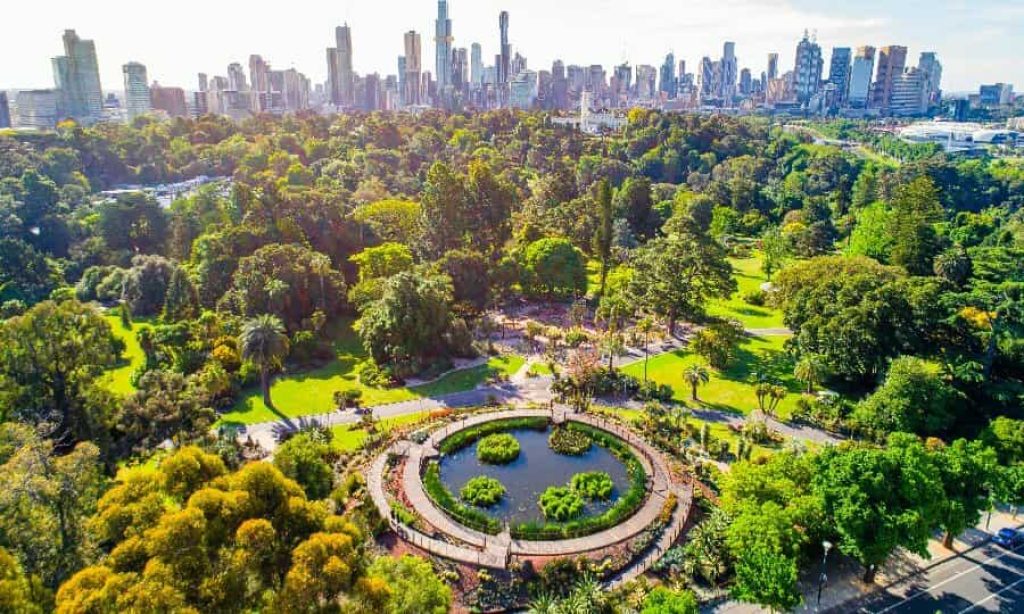
The Royal Botanic Gardens, located in southwest London, were opened in 1759 with the express intention of collecting and studying plant species from around the world. Includes a variety of plants that are going on site. As well as more than eight and a half million protected plants and one of the most comprehensive botanical libraries of fungal specimens, with, for most, more than three-quarters of the million-plus volumes on its shelves, though the draw of the gardens is the magnificent array of historic buildings and a wealth of floral colors.
All you see is home to nine important plants, where species that don’t grow naturally in the British climate are grown, as well as a series of decorative buildings, including a 164-foot-tall pagoda that houses 250 people. Standing for over a year, perhaps the most famous structure is the Tempered House, the world’s largest surviving Victorian-era greenhouse used as a greenhouse where extremely rare and magnificent plants are grown, and it is the focus of many research programs that are conducted at the site, which covers a large area, With over 300 acres, it is impossible to see all that Q has to offer in one visit.
#3. Nong Nooch Tropical Garden
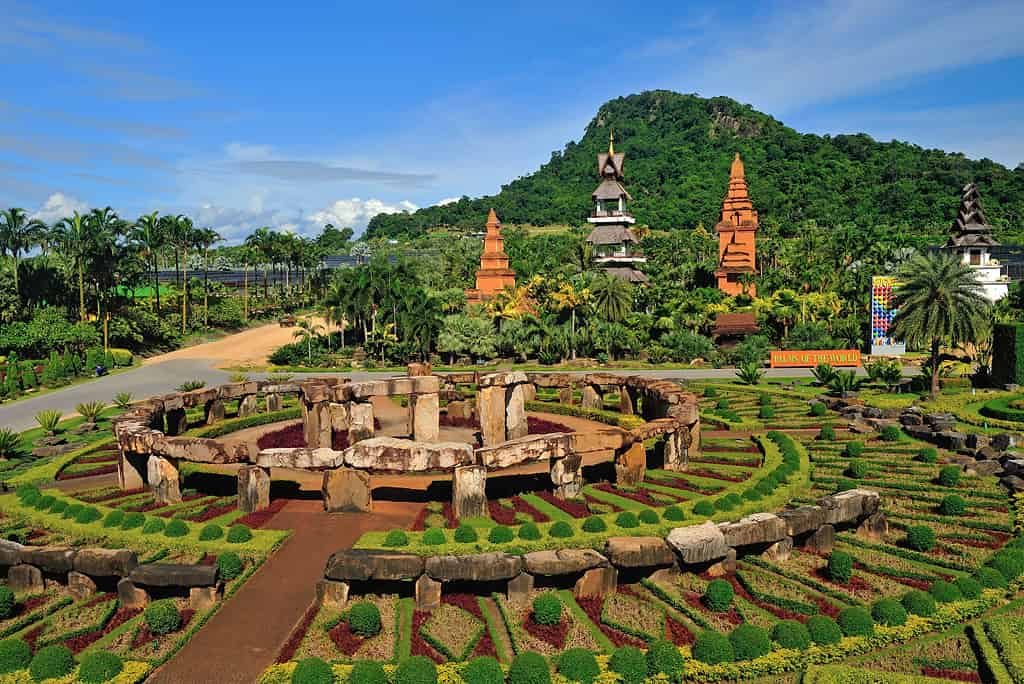
Nong Nooch Tropical Garden In 1954, two businessmen bought an 800-acre plot of land in Chonburi Province, Thailand, with the intention of turning it into fruit orchards, but once they started developing the land, they instead decided it was ideally suited. Becoming a wildlife conservation project where he could grow countless species of tropical plants and flowers, it took him 26 years before the long-rumored Tropical Botanical Garden was ready to open to the public, but now spread over 500 acres, it has become one of the most attractive places in the world.
The country is divided into nine sections, each of which is dedicated to the flora of a particular region. These include the French Garden, the European Garden, the Cactus and Succulent Garden, and the Orchid Display Garden, but the site is most famous for its scientific research on cycads from Southeast Asia, Africa, and the Americas. A collection of nearly every known species Also, the vast gardens of Nong Nooch have various activities for the entertainment of visitors, such as religious ceremonies, martial arts demonstrations, and elephant performances. But it is a perfectly designed landscape of rows upon rows of color animation.
#4. The Butchart Gardens
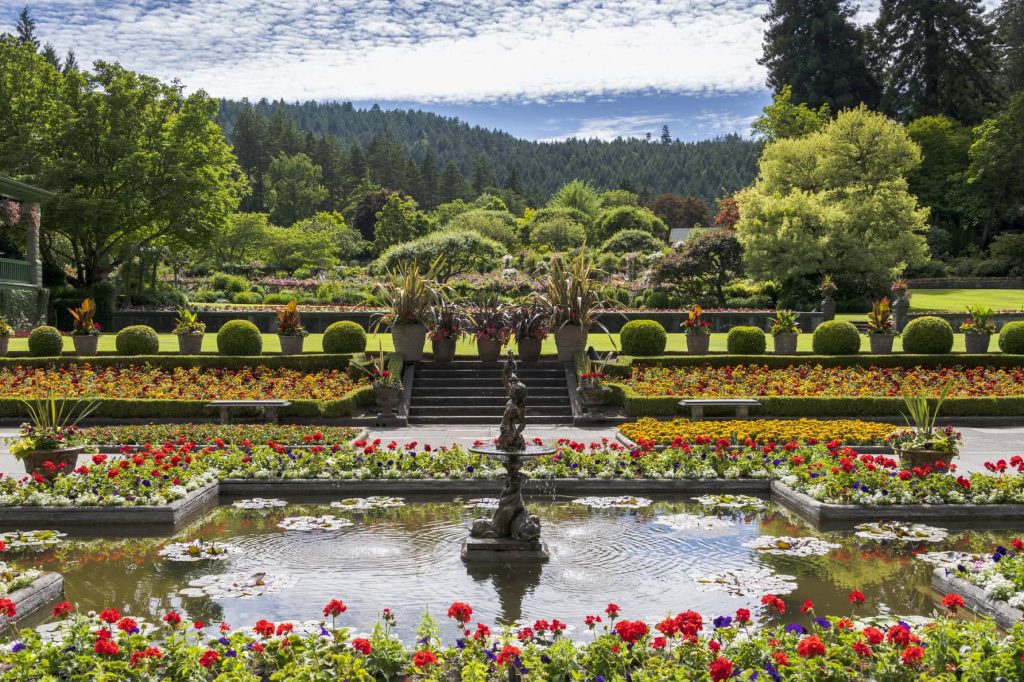
Butchart Gardens in British Columbia, Canada, has been designated a National Historic Site of Canada and is one of the most famous botanical gardens in the world, with over a million visitors each year. The one who did the digging was gone. Limestone area and built a sunken garden in the quarry, which opened to visitors in 1926.
Due to its success, he proceeded to replace his tennis court with an Italian garden and plant a rose garden. Where their kitchen garden used to be and where further development took place. In the 1950s and 1960s, when a huge fountain was installed in the lower reservoir, as well as miles worth of electrical wiring to illuminate the site at night, it became one of the largest rose gardens in North America.
Along with a wide variety of flowers, there are several large birdhouses in that houses a large number of ornamental birds, such as peacocks and parrots. Several large sculptures by well-known artists are displayed throughout the grounds, And in 2008, even a 12-person electric boat that offers tours from different viewpoints with a focus on education was opened, along with a children’s pavilion in 2009 and gardens to add to the entertainment on offer. There are often regular fireworks displays and even an ice rink installed. During the winter
,
#5. Keukenhof Garden

The Keukenhof, often called the Garden of Europe, is one of the world’s largest flower gardens, located in the city of Liege in the Netherlands, and each year more than 7 million bulbs are planted around 79 acres, creating stunning scenario. and while it is most famous for the Botanical garden’s wide variety of tulips as well, hyacinths, daffodils, lilies, roses, and many other bulbs, these gardens are planted each year by a group of 100 growers from around the country.
the country Are donated to it, and it is the work of only 40 gardeners. It is only open for the public only for eight weeks between March and May each autumn, and special treatment to ensure that every row of flowers is in full bloom during this time.
In fact, three bulbs are placed in each spot for the first three weeks, with the lowest bulb emerging for the next three and the final weeks of the final display. Surprisingly, It is a popular destination; with over a million and a half visitors in a year spanning the two months during the opening, that means 26,000 people pass through the gardens every day. and this one is the most visited place in Holland during this season.
#6. Pukekura Park
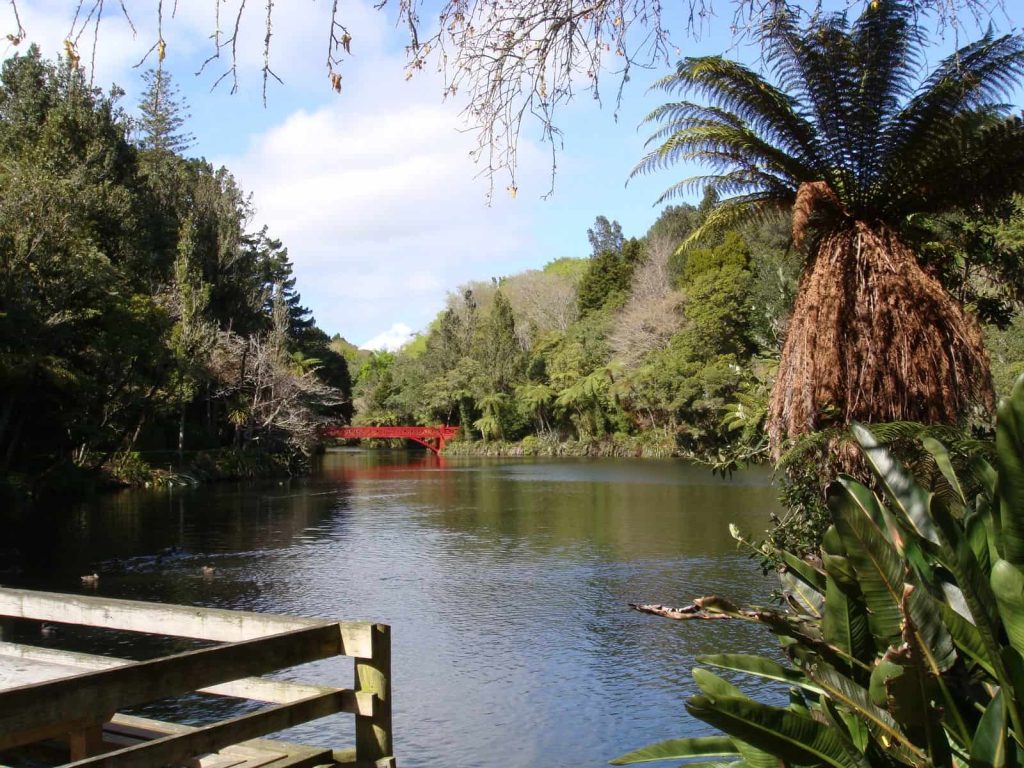
Pokakura Park is a designated park of national importance that can be found in the city of New Plymouth in the Taranaki region of the North Island of New Zealand. is done through It was first developed and opened to the public in 1876 and is now home to thousands of different species of plants, although gardeners themselves admit they don’t know how many ferneries and display houses the grounds contain.
There are many such plants as rhododendrons on the Curiosity Walk, and they have been in bloom for so long that many of the plants are now over 100 years old, meaning the only other places you will see such mature specimens are within the hard-to-reach forests of The origins are even more impressive, as the land was originally flat, and every lake, tunnel, and stream you see was carefully carved by hand. is, and movies
#7. Jardin Majorelle-Yves Saint Laurent Mansion
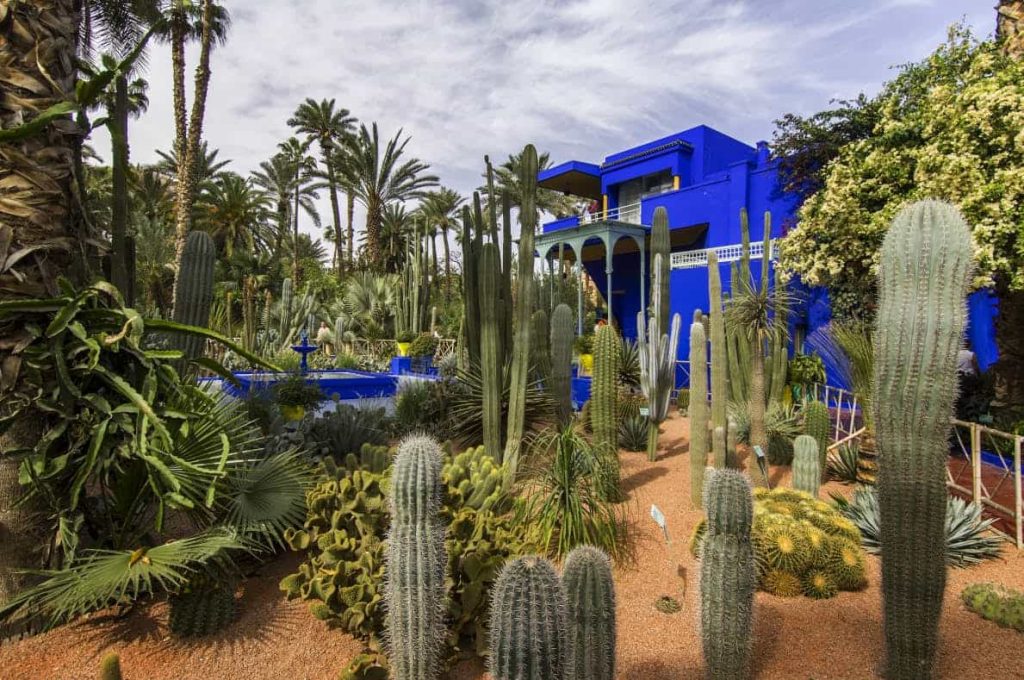
Jardin Majorelle-Yves Saint Laurent Mansion The monumental botanical garden created by French artist Jacques Masure over 40 years covers two and a half acres of land in Morocco. He was drawn to this location by the warm climate and his Worked as a house. From 1923 to the 1950s, it fell into disrepair and was bought by Yves Saint Laurent and Pierre Balmain in the 1980s to restore it and open it to the public.
Throughout the site, some brightly colored buildings are used as museums dedicated to certain artists or artistic styles. And has become famous for its unusual collection of plants, especially cacti, as well as large sculptures that adorn almost every scene, making it one of the most important tourist attractions. Marrakech attracts over 700,000 visitors each year, and although its creator died long ago, funds raised are put back into research and development to ensure the plants on display remain relevant and attractive.
#8. San Souci Park
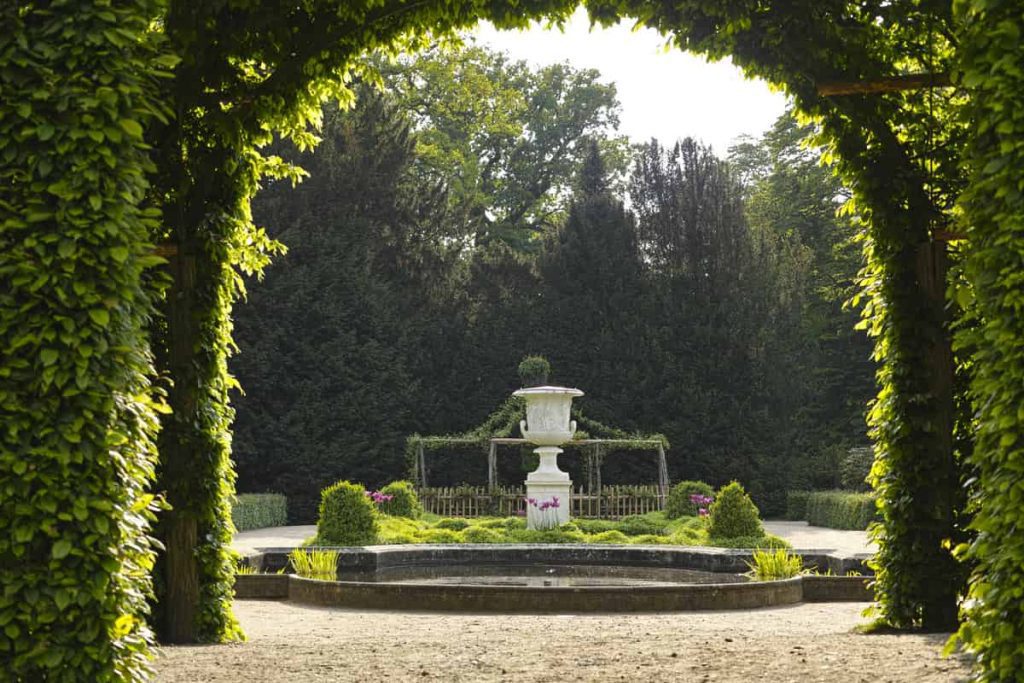
The San Souci Park in Potsdam, Germany, was once the residence of Frederick the Great, King of Prussia, and while the building itself is an outstanding example of Frederick the Great, and while the building itself is an outstanding example of architecture from the period, It has foundations around it. Which has attracted the most attention for its beauty and is considered the world’s finest example of Baroque garden design, an elaborate network of fountains was built in the 18th century.
But the king would never have seen it in all its glory had the designers not planned how the water would actually flow through the basins and pipes. It wasn’t until a century later with the introduction of steam power. A real vision could be realized. The Baroque orchards are plain to see, with thousands of fruit trees and several nurseries dedicated to growing oranges, melons, peaches, and bananas. The temple also includes a church and Roman baths. A bush grows
#9. Gardens Of Versailles
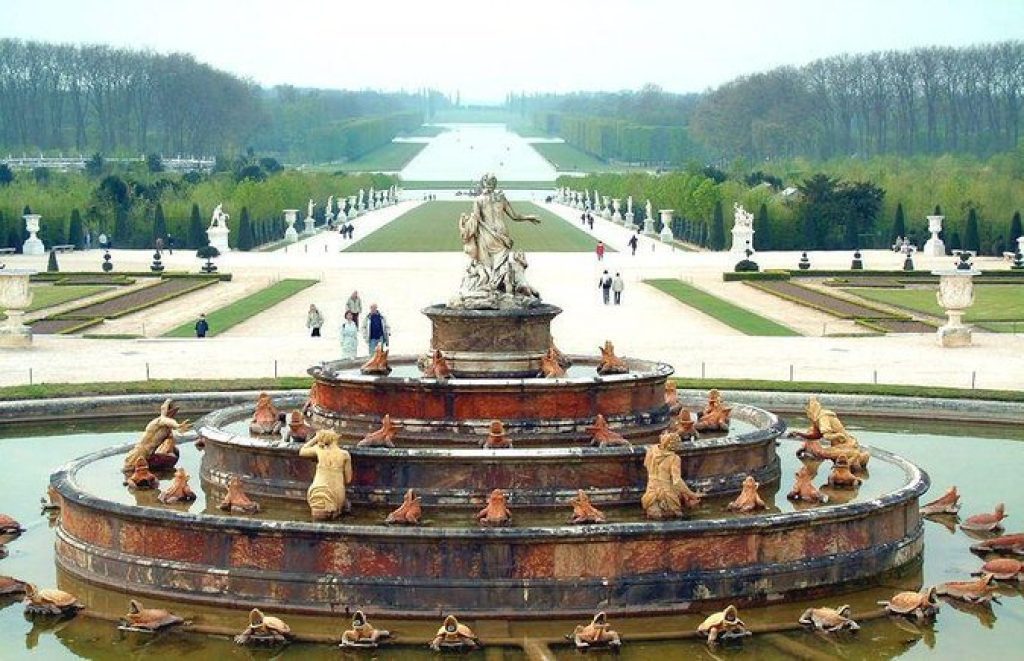
The Gardens of Versailles are one of the most recognizable buildings in the world and have been one of the most important buildings in Paris since it became the home of French royalty in the 17th century. Part is full. The lavish decoration is fit for a king, and the design aesthetic extends to the surrounding landscape. To the west of the palace are the Gardens of Versailles, which cover an area of approximately 2000 acres in the traditional French formal garden style.
There are exquisitely manicured lawns with smooth plant beds and a network of numerous sculptured waterways and fountains that were far ahead of their time when they were built some 400 years ago. Displays with the original hydraulic mechanism still fully working are often put up during the summer months to show people what a magical place it really is. Trees are 200,000 flowers that have to be replanted. Six hundred base water jets and ten miles of piping each year have made the area such a part of French history that the gardens have been designated a UNESCO World Heritage Site in their own right.
#10. Jardim Botanico Do Rio De Janeiro
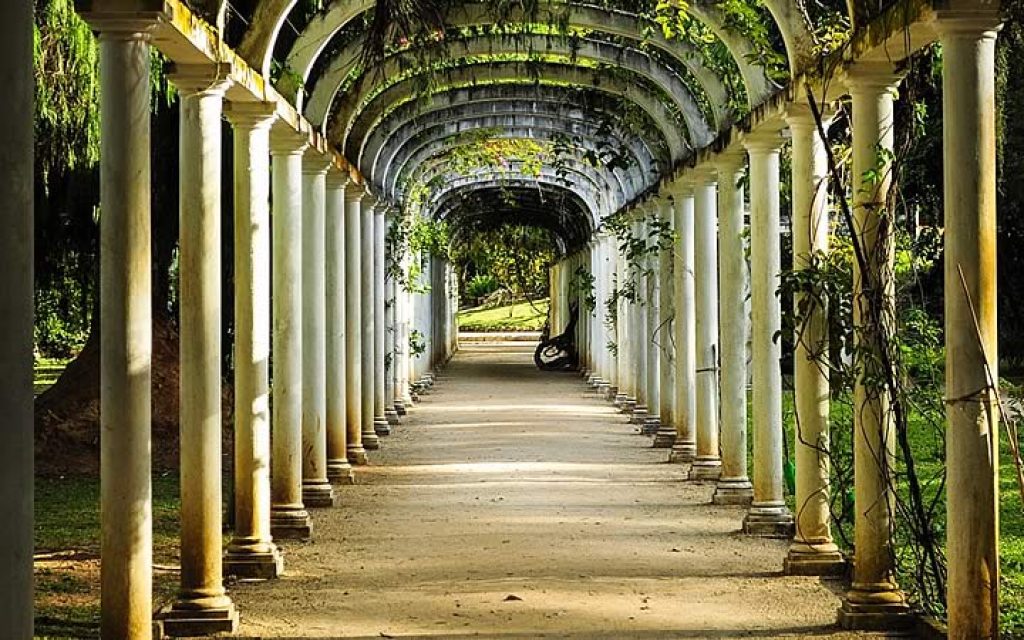
When you think of Rio de Janeiro, the first thing that comes to mind is the beach and the Crystal Redemptorist statue that overlooks the city, but there is another spectacular place that attracts visitors from all over the world. The side faces the botanical gardens of Rio de Janeiro, where it was founded. By King John V of Portugal in 1808 and original
His intention was to use it as a place to adapt the plant species he hoped to grow in South America, and it has now become a place where the best specimens from across the continent are nurtured. There are more than 6500 different plant and tree species on 130 acres. The site has 900 different date palms, and the 2460-foot-long entrance road has an amazing display of 130 date palms, all descended from the same tree.
Designated a UNESCO Biosphere Reserve in 1992, only 40 percent of the park is actively cultivated, and the rest is natural Atlantic forest that grows on the flanks of the nearby Corcovado mountain, as well as exhibiting flora from the area. There is also a way. Host a research institute that specializes in identification.
And there are various artificial ponds, sculptures, fountains, and buildings to protect the local species, and it has also become a wildlife reserve with more than 140 species of birds, including channel-billed toucans.
White-necked hawks and more
People Like To Read Also This:
- 10 Places You Didn’t Know Existed, But Should Definitely Visit
- Top 10 Countries To Visit In 2023 | Travel Around The World In 2023
- How To Spend 7 Days In Sri Lanka| Travel Advice
- The 5 Best And Cheapest Foods in Kuwait You Should Eat Right Now







